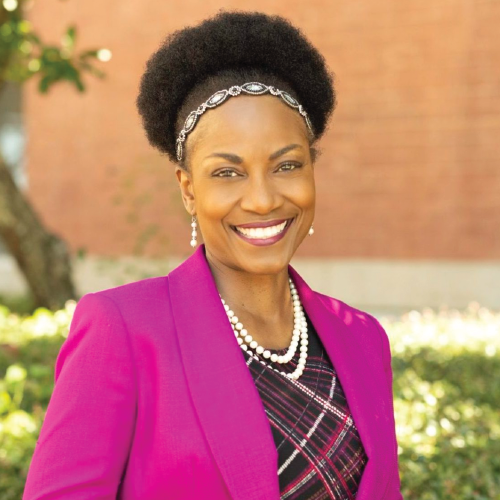The Role of a District’s High Expectations
March 01, 2021
Excellence and equity are core values of Selma City Schools in Alabama, defined by the district’s unique needs to educate scholars who are almost exclusively Black and from high-poverty families. No one rises to low expectations. As we strive to improve students’ lives, we do so by establishing a culture of high expectations for everyone, including our administrators and teachers.

Team Selma prioritizes equity through high expectations, and we are intentional about including our leaders and teachers in our efforts. Principals work in small-group professional learning communities and individually with their principal partner from the district office.
Using the inquiry cycle tool from the University of Washington’s Center for Educational Leadership, our school leaders use various data points to prioritize student learning. This means identifying a student learning problem along with a teaching problem of practice that when addressed would impact student learning. The cycle ensures principals can articulate an instructional leadership area of focus that will inform their work during the inquiry cycle. Ultimately, this leads to a theory of action as part of a year-long learning plan.
Teachers receive support and professional learning from their school’s Teaching and Learning Community. The TLC empowers teachers to have a voice and role in the district’s instructional direction — from selecting intervention programs to having access to our Aspiring Leaders Academy.
The latter ensures that we maintain a leadership pipeline that embeds sustainable practices throughout the district. The pipeline allows us to promote from within, which inspires team members and improves our retention rate.
Rigorous Teaching
High expectations also mean our schools and programs remove any barriers limiting access to a rigorous education. At our middle school, R.B. Hudson STEAM Academy, we offer a wide array of STEAM-focused opportunities. Consistently popular are sports math, natural hair care and African dance. These classes allow our scholars to explore and understand their heritage while also encouraging creativity, teamwork and critical thinking.
Students can excel in robotics and coding as demonstrated by their award-winning contributions to the annual Congressional App Challenge. In the most recent contest, STEAM Academy students swept the top three places in the statewide contest.
Watching the pride on the faces of young Black scholars create and explore advanced computer science is one of the most gratifying parts of my job. They constantly remind me of why we do what we do and affirm the need for high expectations. Our scholars excel at least in part because we expected them to.
Shared Responsibility
Progress cannot be made without including families. Shared responsibility and accountability enables us to provide wraparound services to improve outcomes for the entire family. Our Parent University is the vehicle for this work, and a Parent University bus travels across the community to demonstrate our commitment to families.
This repurposed school bus is equipped with Wi-Fi. During COVID-19 school closures, we delivered meals, learning packets and other resources. By establishing a mutually respectful relationship with them and being transparent, our families reciprocate and are responsive to us when needed. By taking care of our families we better equip them to care for their children.
Our Adopt-A-School program offers a framework for including the entire Selma community. Each school has four or more outside partners that contribute based on student needs. The community has ownership and shared responsibility.
As one of the poorest communities in Alabama’s Black Belt, Selma faces many challenges. We have made continuous improvement in academic outcomes on the path to excellence and equity.
AVIS WILLIAMS is superintendent of Selma City Schools in Selma, Ala.
@DrAvisW
Author
Advertisement
Advertisement
Advertisement
Advertisement



.png?sfvrsn=3d584f2d_3)
